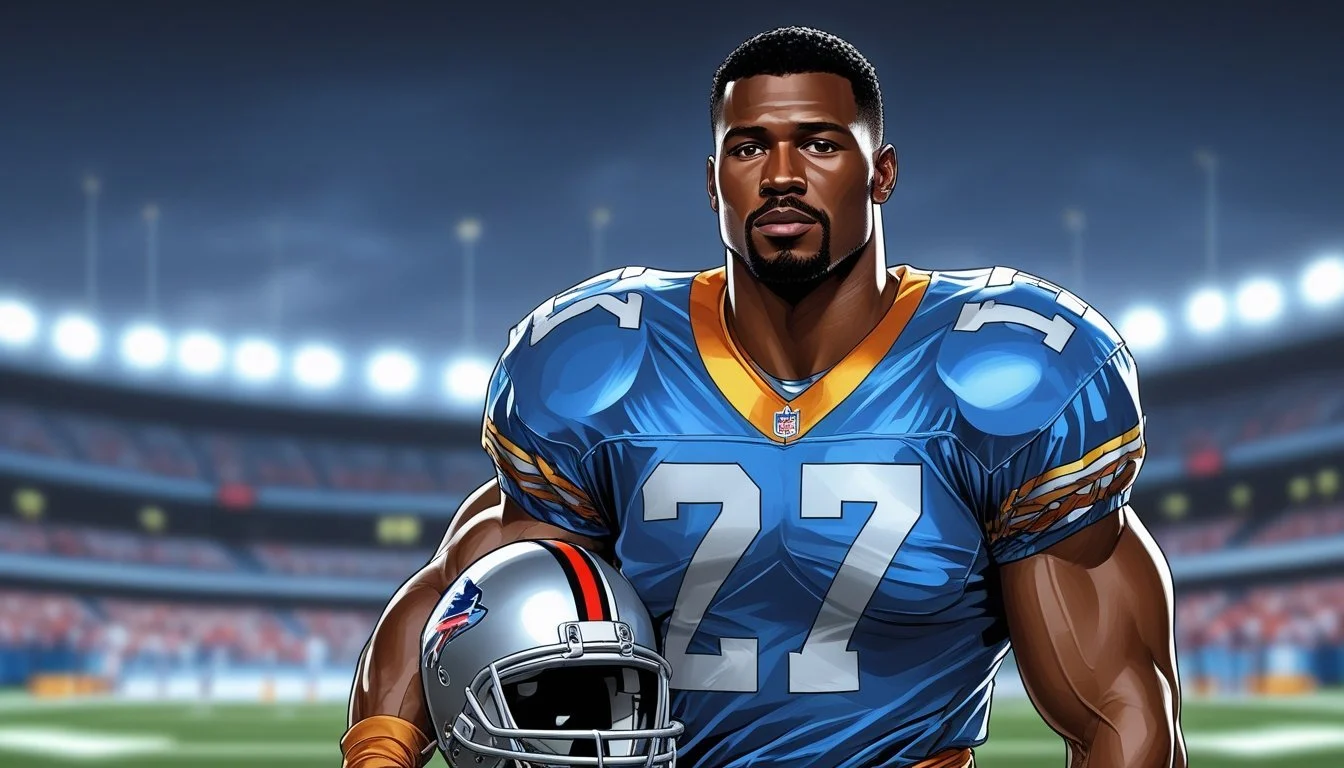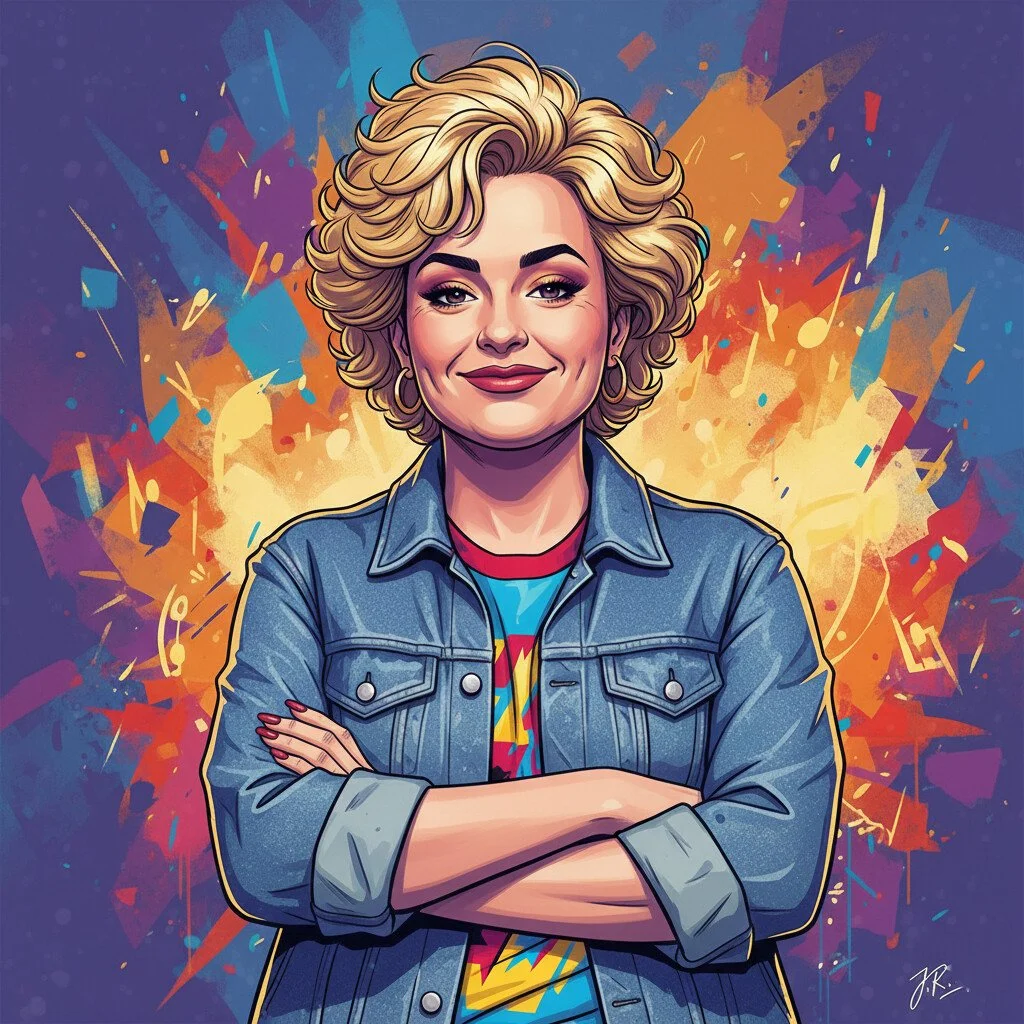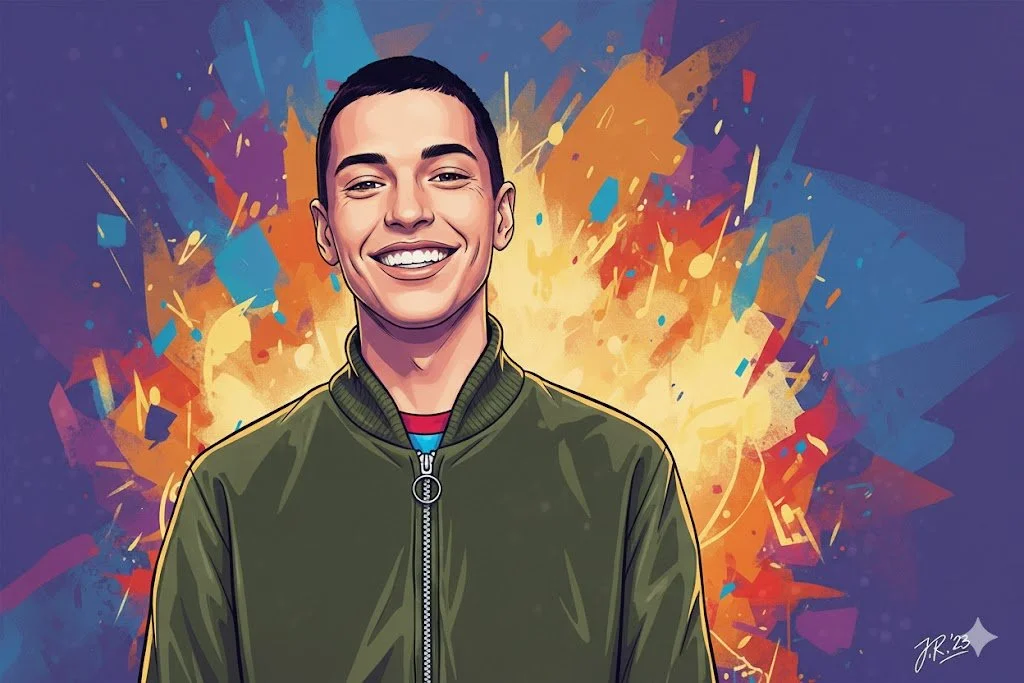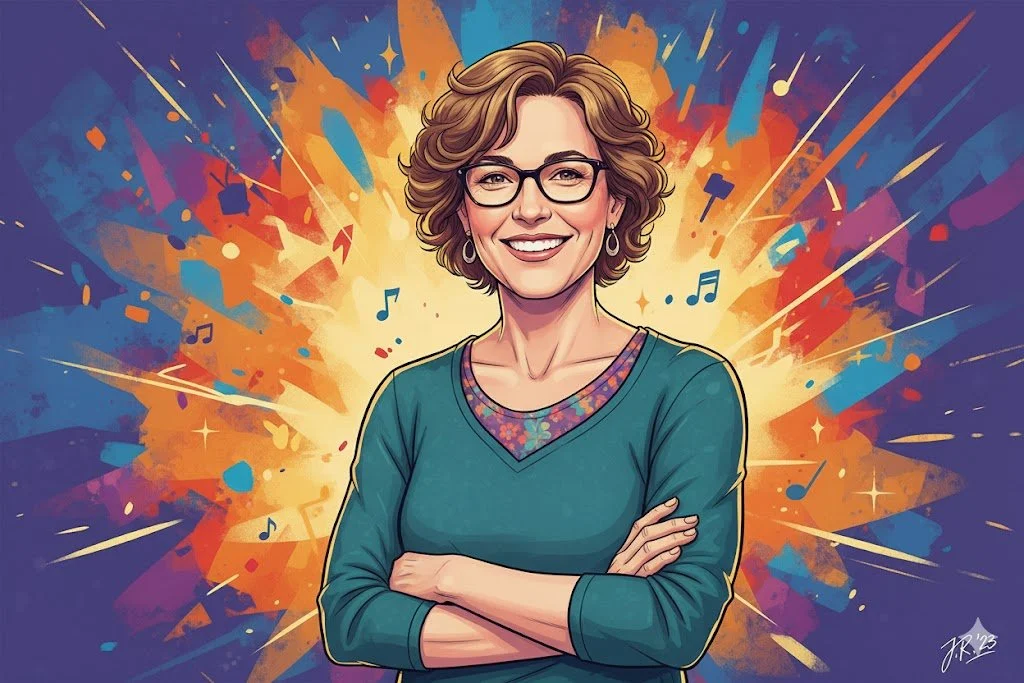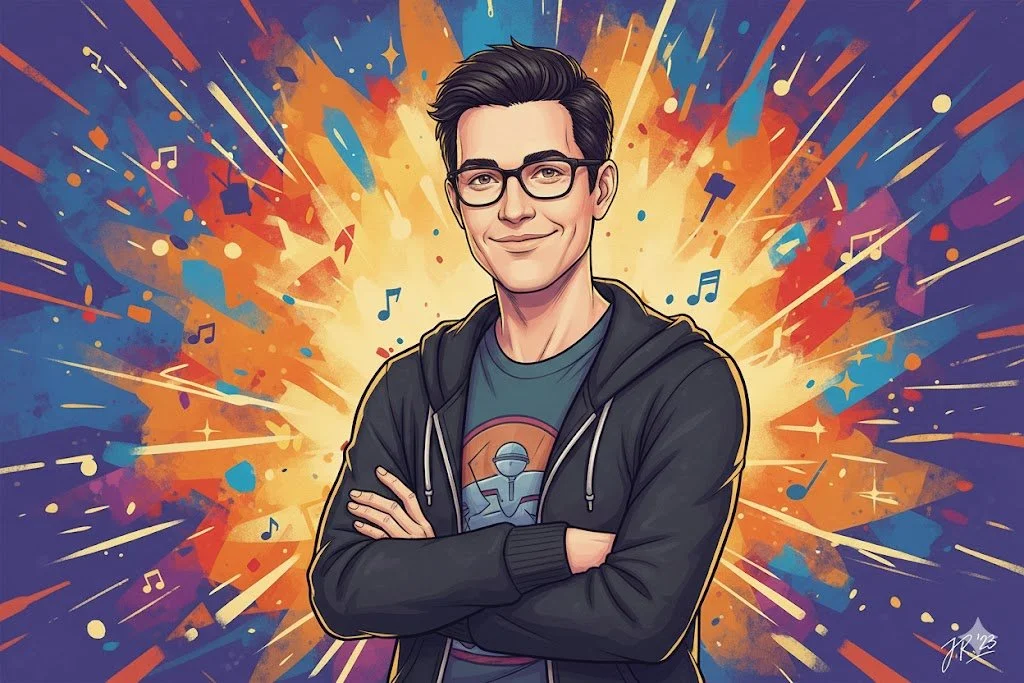13 Celebrities With Dissociative Identity Disorder
Dissociative disorders, including dissociative identity disorder (DID), are complex mental health conditions that affect millions of people worldwide. These disorders often stem from severe trauma or abuse, causing individuals to disconnect from their thoughts, memories, and sense of identity as a coping mechanism. DID affects approximately 1–3 percent of the population, making it more common than schizophrenia.
DID is often misrepresented in media, which can lead to misconceptions and delay help-seeking. While many who experience dissociative disorders choose to keep their struggles private, some public figures have courageously shared their personal journeys. Adam Duritz, the frontman of the Counting Crows, has openly discussed his experiences with DID. Marilyn Monroe is another famous individual known to have DID. Shirley Ardell Mason, diagnosed with dissociative identity and the subject of the book Sybil, popularized the concept of Multiple Personality Disorder (now DID), but her case later became controversial.
By openly discussing their experiences with dissociative disorders, these famous individuals have helped reduce stigma and increase awareness about these often misunderstood conditions. Their stories provide valuable insights into the challenges of living with dissociative disorders and highlight the importance of seeking professional help. DID is diagnosed through structured clinical interviews and DSM-5 criteria, and a did diagnosis requires careful assessment by mental health professionals to accurately diagnose dissociative identity disorder and distinguish it from other mental health conditions. From actors and musicians to athletes and writers, these public figures demonstrate that dissociative disorders can affect anyone, regardless of their background or achievements.
Introduction to Mental Health Conditions
Dissociative identity disorder (DID), previously known as multiple personality disorder, is a complex mental health condition that profoundly affects an individual's sense of self and reality, often resulting in the fragmentation of identity. Characterized by the presence of two or more separate identities, known as alternate personalities or alters, DID often emerges as a coping mechanism in response to severe trauma, such as physical, emotional, or sexual abuse, during early childhood. Childhood trauma, especially severe or repetitive abuse, is the primary cause of DID.
These alternate personalities can control an individual’s behavior at different times, each with its own distinct characteristics, memories, and ways of interacting with the world. DID involves the presence of distinct identities or different personalities, each with their own roles and behaviors, which develop as a response to trauma. This disconnection from one’s primary identity serves as a protective barrier against the overwhelming pain of traumatic experiences, allowing the person to function in daily life despite the underlying turmoil.
While both DID and complex PTSD stem from severe trauma, complex PTSD is characterized by pervasive emotional dysregulation and self-concept disturbances, requiring trauma-informed treatment approaches tailored to address these overlapping but distinct conditions. Understanding DID requires recognizing the profound impact of early trauma on the development of the self and the intricate ways the mind adapts to survive.
The Impact of Childhood Trauma
Childhood trauma is one of the most significant factors in the development of dissociative identity disorder (DID), formerly known as multiple personality disorder. Mental health professionals have long recognized that severe trauma, such as physical, emotional, or sexual abuse, during early childhood can overwhelm a child’s ability to cope, leading to the creation of alternate personalities as a survival mechanism. This dissociative disorder is marked by the presence of two or more distinct personality states, each with its own unique characteristics, memories, and ways of interacting with the world.
When a child experiences repeated or severe trauma, their mind may respond by forming separate identities, or alter egos, to help process traumatic memories and shield the core personality from overwhelming stress. These alternate personalities can emerge to handle specific situations or emotions, allowing the individual to function in everyday events despite the pain of their past. This coping mechanism, while protective in the short term, can lead to complex mental health challenges later in life, including identity confusion, memory gaps, and difficulty regulating emotions.
Famous people such as Herschel Walker and Shirley Mason have bravely shared their experiences with DID, helping to raise awareness and reduce stigma around this misunderstood condition. Their stories highlight how childhood abuse, especially sexual abuse, can trigger the development of multiple personalities as a way to survive and adapt to traumatic events. The dissociative symptoms that result, such as dissociative amnesia, identity shifts, and the presence of distinct personality states, are not signs of weakness or fabrication, but rather the mind’s attempt to protect itself from unbearable pain.
Effective treatment for DID often involves trauma therapy, where mental health professionals use specialized techniques like eye movement desensitization and reprocessing (EMDR) to help individuals process traumatic memories and integrate their alternate personalities. Support groups and family therapy can also play a crucial role, providing a safe space for individuals to share their experiences and develop healthier coping mechanisms. The American Psychiatric Association recognizes DID as a legitimate mental health condition, and an official diagnosis can be a vital step toward healing.
It’s important to remember that people living with DID are not alone, and with the right support and effective treatment, they can learn to manage their symptoms and lead a normal life. By increasing awareness and understanding of the impact of childhood trauma on dissociative identity disorder, we can help reduce stigma, encourage more people to seek treatment, and foster a more compassionate approach to mental health challenges.
1) Demi Lovato
Demi Lovato has been open about experiencing dissociation as a coping mechanism for fame. The singer and actress, who uses she/her and they/them pronouns, has discussed this mental health challenge in relation to her experiences as a child star. Lovato has also revealed that she was sexually assaulted as a child, which contributed significantly to her mental health struggles.
Lovato recently directed a documentary called “Child Star,” exploring the highs and lows of growing up in the entertainment industry spotlight. In interviews, she has shared that dissociation is one of the common threads connecting her to other child stars, who often felt a disconnect and emotional burden due to their unique experiences.
The artist has undergone treatment for various issues, including a 90-day program to address her physical and emotional well-being. Lovato has been candid about her struggles with food and addiction as well.
Lovato’s journey with mental health became widely known in 2011 when she entered rehab. During this time, she received a formal diagnosis of , adding another layer to her complex mental health experiences.
Through her music and public appearances, Lovato continues to raise awareness about mental health challenges. She often offers words of encouragement to young people in the industry, emphasizing the importance of self-care and seeking help when needed.
2) Mary Todd Lincoln
Mary Todd Lincoln, the wife of President Abraham Lincoln, experienced symptoms consistent with dissociative disorders. Born in 1818 in Kentucky, she faced numerous traumas throughout her life that likely contributed to her mental health struggles.
As First Lady during the Civil War, Mary Todd Lincoln witnessed intense violence and loss. The death of her son Willie in 1862 deeply affected her, leading to periods of erratic behavior and emotional instability.
Following her husband's assassination in 1865, Mary's mental state deteriorated further. She reported hearing voices and experienced paranoid delusions, believing people were trying to harm her.
In 1875, Mary's son Robert had her committed to an asylum. This controversial decision highlighted the severity of her symptoms and the lack of understanding surrounding mental health at the time.
While never formally diagnosed with a dissociative disorder, Mary Todd Lincoln's experiences align with many symptoms associated with these conditions. Her story sheds light on the impact of trauma and the challenges of managing mental health in the 19th century.
3) Herschel Walker
Herschel Walker, former NFL player and Heisman Trophy winner, has spoken openly about his experience with Dissociative Identity Disorder (DID). In 2008, Walker published an autobiography titled “Breaking Free: My Life with Dissociative Identity Disorder.”
The book details Walker’s struggle with DID, previously known as multiple personality disorder. He describes having 12 distinct alters or separate identities that would take control of his psyche at various times. Each of his other alters or other personalities had their own unique characteristics, awareness, and roles, which influenced his behavior and memory.
Walker’s revelation brought significant attention to DID, as he was one of the first high-profile athletes to discuss mental health issues publicly. His candid approach helped reduce stigma surrounding the disorder.
In his book and subsequent interviews, Walker explains how he worked to manage his condition. He emphasizes the importance of therapy and support in dealing with DID.
While Walker has claimed to have “overcome” his illness, mental health experts note that DID is typically managed rather than cured. His story continues to raise awareness about dissociative disorders and their impact on individuals’ lives. Notably, Billy Milligan was the first individual to successfully use dissociative identity disorder as a legal defense in a criminal case, highlighting the impact of DID in legal and public contexts.
4) Roseanne Barr
Roseanne Barr, the renowned American actress and comedian, has openly discussed her experiences with dissociative identity disorder. She first revealed her diagnosis in 1994, bringing attention to this complex mental health condition.
Barr’s struggle with DID stems from childhood trauma. She has described experiencing abuse during her early years, which led to the development of multiple personalities as a coping mechanism. Family members and the family environment, including emotional neglect and unpredictable parental behavior, can play a significant role in the development of dissociative symptoms and alters.
The actress has shared that she has several distinct alters, each with their own characteristics and memories. These alters have helped her navigate challenging situations throughout her life and career by possessing the ability to cope with trauma in ways her original self could not.
Barr’s decision to speak publicly about her disorder has contributed to raising awareness and reducing stigma surrounding DID. Her candid discussions have shed light on the daily challenges faced by individuals living with this condition.
Despite the difficulties associated with DID, Barr has managed to maintain a successful career in entertainment. Her openness about her experiences has inspired others to seek help and understanding for their own mental health struggles. Family support can reinforce therapeutic gains in DID treatment by promoting understanding, consistency, and safe expression of all identity states.
5) Eve A. Wood
Eve A. Wood is a psychiatrist and author who has openly discussed her experiences with dissociative identity disorder (DID). She has written about her personal journey in her book “The Gift of Adversity: The Unexpected Benefits of Life’s Difficulties, Setbacks, and Imperfections.”
Wood’s case is particularly notable because she is a mental health professional who has experienced DID firsthand. Her DID diagnosis provides a unique perspective on both the clinical and personal aspects of the disorder, allowing her to offer valuable insights into the importance of accurate clinical assessment and understanding of DID.
Through her work and advocacy, Wood has explained the complex nature of DID, particularly the role of memory loss and how traumatic experiences, especially in childhood, can lead to the development of amnesia barriers. She has emphasized the importance of understanding and treating these conditions with empathy and compassion.
Wood’s openness about her own struggles has contributed to reducing the stigma surrounding dissociative disorders. Her story serves as an example of how individuals with DID can lead successful and fulfilling lives while managing their condition.
6) Winona Ryder
Winona Ryder, an acclaimed actress known for her roles in films like “Edward Scissorhands” and “Girl, Interrupted,” has been open about her struggles with mental health. While not specifically diagnosed with a dissociative disorder, Ryder’s experiences with anxiety and depression, which are often coexisting conditions found in individuals with dissociative identity disorder and other disorders, have given her insight into the complexities of mental health.
Ryder’s role in “Girl, Interrupted” allowed her to explore the portrayal of mental illness on screen. The film, set in a psychiatric hospital, touches on various mental health conditions, including dissociative experiences.
In interviews, Ryder has discussed the importance of mental health awareness and the need for more accurate representations in media. Her advocacy has helped to reduce stigma and encourage open conversations about mental health issues.
Ryder’s personal experiences with anxiety have led her to take breaks from her acting career to focus on her wellbeing. She has emphasized the importance of seeking help and support when dealing with mental health challenges.
Through her work and public statements, Ryder has contributed to a broader understanding of mental health struggles, including those related to dissociative experiences.
7) Britney Spears
Britney Spears, the iconic pop star, has faced intense public scrutiny regarding her mental health. While she has not publicly disclosed a dissociative disorder diagnosis, her experiences have sparked discussions about mental health and conservatorships.
Spears was placed under a conservatorship in 2008, which lasted for 13 years. This arrangement gave her father significant control over her personal and financial affairs.
The singer’s struggles with mental health became highly publicized, leading to speculation about various conditions. These struggles have significantly impacted her ability to live a normal life. However, it’s important to note that specific diagnoses have not been confirmed by Spears herself.
In recent years, Spears has been more open about her experiences. She has shared glimpses of her personal life and mental health journey on social media platforms.
The #FreeBritney movement brought attention to the complexities of her situation and raised awareness about conservatorships. This public discourse has highlighted the importance of understanding and supporting individuals with mental health challenges.
Spears’ story underscores the impact of public scrutiny on personal struggles. It also emphasizes the need for compassion and respect when discussing mental health issues, especially those of public figures.
8) Hannah McFadden
Hannah McFadden is a Paralympic athlete who has been open about her experiences with dissociative disorders. She was diagnosed with dissociative identity disorder through structured clinical interviews and DSM-5 criteria, ensuring accurate identification and prompt intervention. As a competitive wheelchair racer, she has represented the United States in multiple Paralympic Games.
McFadden has spoken publicly about her struggles with dissociative identity disorder (DID). This condition involves the presence of two or more distinct personality states within an individual, often emerging as a new personality that can exhibit different traits and behaviors.
Despite the challenges posed by her condition, McFadden has achieved remarkable success in her athletic career. She has won multiple medals in Paralympic competitions, demonstrating her resilience and determination.
McFadden’s willingness to share her story has helped raise awareness about dissociative disorders. By speaking out, she has contributed to reducing stigma surrounding mental health issues in the athletic community.
Her experiences highlight the importance of proper diagnosis and treatment for individuals living with dissociative disorders. McFadden’s journey serves as an inspiration to others facing similar challenges.
9) Lady Gaga
Lady Gaga, the renowned pop star and actress, has been open about her struggles with mental health. She has spoken candidly about experiencing post-traumatic stress disorder (PTSD) and dissociation.
In her documentary “The Power of Kindness,” Gaga revealed that she has dealt with self-harm since she was 11 years old. This admission highlights the long-term impact of her mental health challenges, including the risk of suicide attempts faced by individuals with dissociative identity disorder (DID).
The singer has described experiencing dissociative episodes, where she feels detached from her surroundings or herself. These episodes can be a symptom of various dissociative disorders, including PTSD. It is important to note that some individuals with severe, chronic trauma may develop complex PTSD, which shares overlapping symptoms with dissociative disorders such as emotional dysregulation and disturbances in self-concept.
Gaga’s willingness to share her experiences has helped raise awareness about mental health issues. She has used her platform to advocate for better mental health care and to reduce stigma surrounding these conditions.
Through her music and public appearances, Lady Gaga continues to encourage open discussions about mental health. Her honesty has resonated with many fans who may be facing similar struggles.
10) Princess Diana
Princess Diana, the beloved Princess of Wales, courageously shared her struggles with mental health issues. During her lifetime, she openly discussed her experiences with bulimia nervosa, a serious eating disorder.
Diana's disclosure of her battle with bulimia in the 1990s was groundbreaking. At a time when mental health was rarely discussed publicly, her honesty helped reduce stigma and encourage others to seek help.
The princess revealed that her eating disorder began shortly after her engagement to Prince Charles. She described it as a coping mechanism for the emotional turmoil she experienced in her personal life.
Diana's openness about her mental health challenges extended beyond eating disorders. She also spoke about her experiences with depression and self-harm, further raising awareness about these often-misunderstood conditions.
Her advocacy for mental health awareness and support continued throughout her life. Diana's willingness to share her personal struggles helped many people feel less alone and more empowered to seek treatment for their own mental health issues.
11) Pete Davidson
Pete Davidson, the comedian and actor known for his work on Saturday Night Live, has been open about his struggles with mental health. In 2017, Davidson received a diagnosis of Borderline Personality Disorder (BPD) after years of battling depression.
The diagnosis came as a relief to Davidson, providing clarity on his experiences. He has spoken candidly about the emotional impact of finally understanding the root of his mental health issues.
Davidson's journey with BPD has influenced his comedy and public persona. He often incorporates his experiences into his stand-up routines, using humor as a coping mechanism and a way to raise awareness.
While BPD is not a dissociative disorder, individuals with BPD may experience dissociative symptoms during times of stress. Davidson's openness about his mental health has helped reduce stigma and encouraged others to seek help.
Throughout his career, Davidson has continued to work on managing his BPD symptoms through therapy and medication. His willingness to share his story has made him an influential figure in mental health advocacy.
12) Susan Pease Banitt
Susan Pease Banitt is a licensed clinical social worker with nearly five decades of experience in mental health. She has made significant contributions to the field of trauma therapy and healing.
Banitt is the author of two influential books. Her first, "The Trauma Tool Kit: Healing PTSD From the Inside Out," was published in 2012 and received critical acclaim.
In 2018, Banitt released her second book, "Wisdom, Attachment and Love in Trauma Therapy: Beyond Evidence-Based Practice." This work focuses on integrating spiritual modalities with traditional therapeutic practices.
Banitt maintains a private practice in Portland, Oregon. She specializes in treating trauma and has expertise in attachment theory and its applications in therapy.
Her work often addresses complex trauma and its long-term effects. Banitt emphasizes the importance of understanding adverse childhood experiences (ACEs) and their impact on adult health and well-being.
Through her writing and clinical work, Banitt continues to contribute valuable insights to the field of trauma therapy. Her approach combines traditional methods with innovative, holistic techniques for healing.
13) Wil Wheaton
Wil Wheaton, known for his role as Wesley Crusher in Star Trek: The Next Generation, has been open about his struggles with mental health. In recent years, he has shared his experiences with dissociative disorders.
Wheaton has discussed dealing with depersonalization and derealization, two types of dissociative symptoms. These experiences have affected his perception of reality and sense of self at times. Memory lapses are also a common experience for individuals with dissociative disorders, often accompanied by blackouts and shifts in personality, which can significantly impact daily functioning.
The actor has used his platform to raise awareness about dissociative disorders and reduce stigma surrounding mental health issues. He has spoken candidly about his journey in interviews and on social media, helping others realize their complex identities through his own process of personal discovery.
Wheaton’s openness has resonated with many fans who relate to his experiences. By sharing his story, he has helped others feel less alone in their struggles with dissociation.
Through therapy and self-care, Wheaton has worked to manage his symptoms and improve his mental health. Psychotherapy can help address DID symptoms by providing a safe environment for identifying alters, processing trauma, and developing coping skills to reduce amnesia and identity confusion. He continues to advocate for mental health awareness and support for those dealing with dissociative disorders.
Understanding Dissociative Disorders
Dissociative disorders are complex mental health conditions that affect an individual’s sense of self and reality. Dissociative identity disorder (DID), in particular, is characterized by the presence of distinct identities, also known as other personalities or other alters, each with their own roles and behaviors. These distinct identities may have unique traits, memories, and even physiological differences, and can take control of behavior and awareness at different times.
They often develop as a coping mechanism in response to severe trauma or stress, with childhood trauma—especially when severe or repetitive—serving as the primary cause by overwhelming a young mind's coping capacity and prompting dissociation as a protective mechanism. DID is diagnosed through structured clinical interviews and DSM-5 criteria to ensure accurate identification, but the diagnosis can take years due to symptom overlap with other psychiatric disorders.
Definition and Types
Dissociative disorders involve a disconnection between thoughts, memories, feelings, actions, or sense of identity. The main types are:
Dissociative Identity Disorder (DID): Previously known as multiple personality disorder, DID, or split personality, involves the presence of two or more distinct personality states. Mental health professionals use specific criteria to diagnose dissociative identity disorder, often involving structured interviews and DSM-5 guidelines.
Dissociative Amnesia: Characterized by memory loss that is more extensive than normal forgetfulness.
Depersonalization-Derealization Disorder: Involves persistent feelings of detachment from one’s mental processes, body, or surroundings.
These disorders can significantly impact a person’s daily life and functioning.
Multiple Personality Disorder
Multiple personality disorder, now referred to as dissociative identity disorder (DID), is a type of dissociative disorder that involves the presence of multiple or split personalities within a single individual. These distinct personalities, or alters, each have their own thoughts, feelings, and experiences, and may even possess different names, ages, and characteristics.
The condition is often linked to traumatic events, such as abuse or neglect, which can lead to the development of these separate identities as a means of coping with the overwhelming stress and pain. A horrible childhood, marked by abuse or neglect, is frequently at the root of DID. Symptoms of DID can include memory loss, time loss, and confusion, as individuals may not recall actions taken by their alternate personalities.
Shirley Mason, known as Sybil, is famous for her portrayal of dissociative identity disorder in the book and miniseries 'Sybil.' Public figures like Herschel Walker and Roseanne Barr have bravely shared their experiences with DID, helping to raise awareness and reduce the stigma surrounding this complex condition. Their stories highlight the importance of understanding and compassion in addressing the challenges faced by those living with multiple personalities.
Common Symptoms
Symptoms of dissociative disorders vary but often include:
Memory gaps or loss
Memory lapses, including blackouts and shifts in personality
Feeling detached from oneself
Identity confusion
Altered sense of reality
Emotional numbness
Anxiety and depression
Physical symptoms may also occur, such as headaches, unexplained pain, or gastrointestinal issues. Individuals might experience time distortions or feel like they’re observing themselves from outside their body.
Severity and frequency of symptoms can fluctuate, and some people may go long periods without experiencing significant issues.
Building coping skills enhances self-coherence and lays the groundwork for advanced trauma processing in DID treatment.
Impact on Daily Life
Living with dissociative disorders presents unique challenges for people with dissociative identity. For many, this means managing distinct identities in daily life, each with their own roles and behaviors. Famous individuals who have shared their experiences offer insight into the daily realities of managing these conditions.
Long-term recovery for DID involves ongoing therapy, community support, and self-management strategies to maintain integration and prevent relapse.
Challenges Faced
People with dissociative disorders often struggle with maintaining consistent relationships and work performance. Memory gaps and identity shifts can disrupt daily routines and responsibilities. Memory lapses are a common issue for people with dissociative disorders, often leading to confusion and difficulty recalling events. Some report difficulty trusting their own perceptions or feeling disconnected from their surroundings.
Famous individuals have described experiencing sudden mood changes or feeling like a different person entirely. This can lead to confusion in social situations and misunderstandings with loved ones.
Time loss is another common issue, where hours or even days may pass without clear recollection. This unpredictability can make planning and keeping commitments challenging.
Coping Strategies
Many celebrities with dissociative disorders have found therapy to be crucial in managing their symptoms. Cognitive-behavioral techniques help identify triggers and develop grounding skills.
Maintaining a structured routine often provides a sense of stability. Some use journals or calendars to track time and events, helping bridge memory gaps.
Creative outlets like art, music, or writing serve as both expressive therapy and a way to integrate different aspects of self. Regular exercise and mindfulness practices are frequently cited as helpful in staying present.
Building a support network of understanding friends, family, and professionals is essential. Some individuals find joining support groups beneficial for sharing experiences and coping strategies.
Raising Awareness and Reducing Stigma
Raising awareness and reducing stigma surrounding dissociative identity disorder (DID) and other mental health conditions is crucial for encouraging individuals to seek treatment and support. Many celebrities, including Lady Gaga and Britney Spears, have spoken openly about their struggles with mental health, helping to increase awareness and promote understanding.
By sharing their personal experiences and struggles, these individuals can help to reduce the stigma associated with mental health conditions and encourage others to seek help. It is essential to approach these conditions with empathy and compassion, recognizing that they are complex and deeply personal experiences that can affect anyone, regardless of their background or circumstances.
By working together to raise awareness and reduce stigma, we can create a more supportive and inclusive environment for individuals living with dissociative identity disorder and other mental health conditions.





